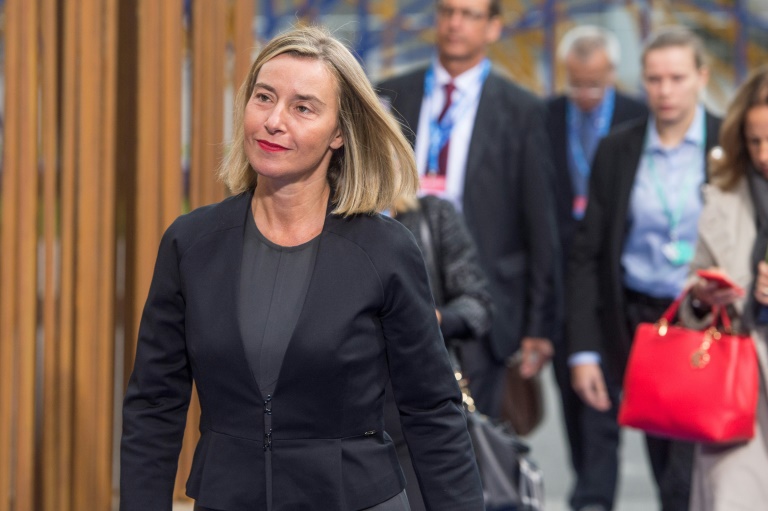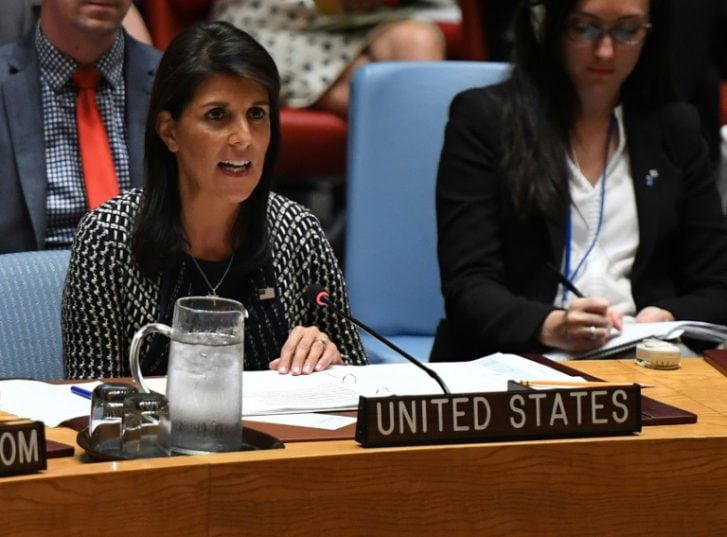Can Acsa fix our broken airports?
While Trump stopped short of burying the deal, booting its fate to Congress for now, one diplomat summed up the feeling of many regarding its long-term prospects: “The agreement is dead.”
Trump’s Iran statement on Friday came four months after he moved to pull out of the 196-nation Paris agreement on climate change and seek to negotiate a new deal that ties in with his “America First” agenda — a proposal widely seen as a non-starter.
Together, these moves illustrate a widening gulf between Washington and its closest European allies, who failed to stop Trump from calling the Iran deal into question, despite more than a month of intense diplomatic efforts.
“This decision will severely complicate Security Council diplomacy on many issues,” said Richard Gowan, an expert at the European Council on Foreign Relations, in the wake of Trump’s Iran speech.
“Trump has shown contempt for his two main allies in the Council, Britain and France, by ignoring their views on Iran,” he said, predicting that “China and Russia will try to emphasize how isolated the US is at the UN.”
Alexandra Novosseloff of the International Peace Institute, a think tank, said that sits well with the Russians and Chinese who “rush in to fill the void left by the Americans.”
– Deal working, EU says –

EU foreign policy chief Federica Mogherini, who has said the Iran nuclear deal “is working and delivering”
The 2015 pact between Iran, Germany and the five permanent members of the UN Security Council — Britain, China, France, Russia and the United States, lifted sanctions in exchange for guarantees that Tehran would not pursue a nuclear weapons capability.
Trump says Iran has not lived up to the “spirit” of the agreement, and is threatening to walk away unless Congress can address the “serious flaws” of what he dubs the “worst deal ever.”
The US president left it up to the Republican-controlled Congress to decide whether to reimpose sanctions on Iran — a step that if taken would almost certainly doom the accord.
Fellow signatories have called for the deal’s preservation, saying Iran is clearly sticking to its commitments, an assurance which also came from the International Atomic Energy Agency.
EU foreign policy chief Federica Mogherini put it most forcefully, saying the accord which ended a more than decade long standoff between Iran and the West “is working and delivering,” and that Trump alone cannot dismantle it.
“It is clearly not in the hands of any president of any country in the world to terminate an agreement of this sort,” she said.
Gowan expects simmering divisions over Iran to complicate talks on other crises on the UN agenda, because few diplomats will now feel confident they can trust the United States.
These include North Korea’s nuclear program, Syria, and Ukraine.
Until now, the US ambassador to the United Nations, Nikki Haley, has been well-regarded by her colleagues on the Security Council.
“She has a very exceptional role, a considerable internal influence,” said one European diplomat. “She takes her orders directly from the White House, when she takes them.”
– Message to North Korea –
In contrast to Defense Secretary Jim Mattis, who has spoken in favor of staying in the Iran nuclear accord, Haley has strongly defended Trump’s position.
According to a third diplomat, Haley was the one who came up with the idea of “decertifying” Iran’s compliance with the accord — rather than tear it up as Trump initially wanted.

US Ambassador to the United Nations Nikki Haley has strongly defended President Donald Trump’s position on the Iran nuclear deal
But the source added that Haley was not an expert on the Iranian nuclear dossier, and that her decision was essentially an “ideological” one.
Faced with North Korea’s nuclear and ballistic missile drive, Haley succeeded this summer in convincing China and Russia — which had resisted punitive measures in favor of dialogue — to support stronger sanctions.
That might not happen again, said Gowan.
“Pyongyang is even less likely to negotiate seriously with the US than before, now it sees that Trump is ready to dump nuclear bargains,” he said.
“It will also be harder to persuade Beijing and Moscow to sign up to future Security Council sanctions on North Korea.”
The US administration pushed back Sunday against the suggestion Trump was creating the impression that America’s word cannot be trusted.
Reevaluating the Iran deal, Haley told ABC’s This Week, “sends the perfect message to North Korea, which is, we’re not going to engage in a bad deal.”
Download our app and read this and other great stories on the move. Available for Android and iOS.